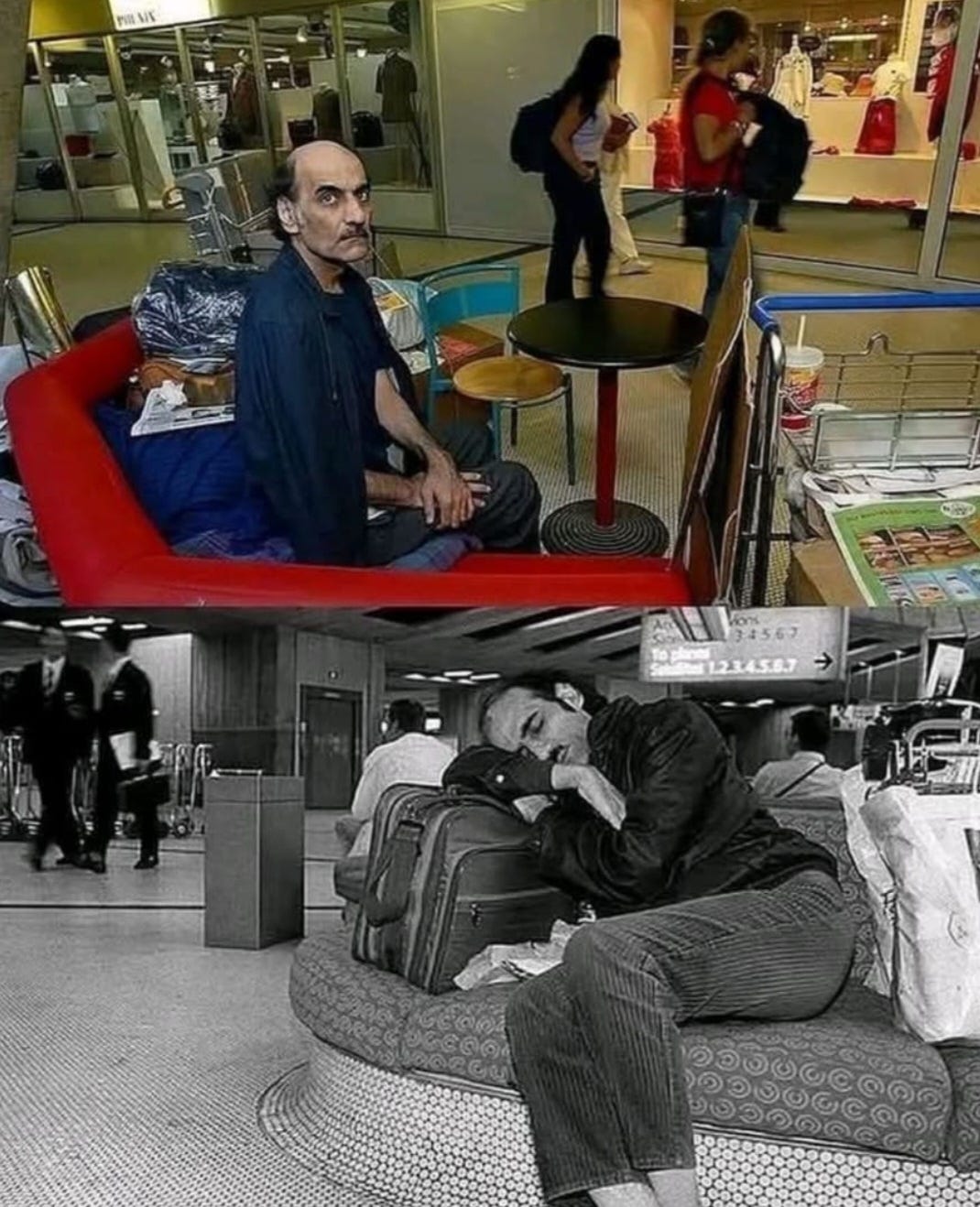Much has transpired since I began drafting this brief “five minutes of fame” reflection. In Somalia, piracy has ominously resurfaced, casting a shadow over maritime security in the Horn of Africa. Mogadishu’s political theatre continues with convoys of four-wheel drives paraded by the usual power brokers - symbols of state spectacle rather than substance. Gaza descends further into humanitarian catastrophe, while tensions flare in former French Indochina (France again, see the story about the airport and footnote below), with Thailand and Cambodia once again simmering at the edge of volatility. No, we did not ignite these fires; they have long been smouldering beneath the surface - rekindled by cycles of injustice, impunity, and global indifference. (With due respect to Billy Joel.)
As I mentioned in my previous note last week, see here I intend to reflect on the complex and often distressing experience of holding a Somali passport in an increasingly inhospitable global environment.
Caught in a Legal Maze: This reality is not unique to Somalis alone. A poignant example is the case of Mehran Karimi Nasseri, an Iranian national who became trapped in legal limbo at Charles de Gaulle1 Airport due to missing identification documents. Unable to leave or enter any country, Nasseri spent 18 years residing in the airport, where he studied economics, built relationships with airport staff, and authored his memoir, The Terminal Man, which inspired Steven Spielberg’s 2004 film, The Terminal. Nasseri died at the same airport in 2022. His story exemplifies the bureaucratic absurdities and humanitarian crises that continue to impact stateless or vulnerable individuals worldwide.
This raises a critical question: What can the Somali government do to alleviate the suffering of its citizens who are stranded in foreign airports, perishing in dangerous sea crossings, or experiencing discrimination and neglect abroad? In my view, there is much that can be done, both in the short and long term. Here goes.
Proposed Measures:
Public Awareness Campaigns:
Launch national education initiatives to inform citizens, especially youth, about the dangers of irregular migration and human trafficking. Accurate information could prevent many from taking perilous journeys based on false promises.Pre-departure Orientation and Support:
Establish structured briefings at Somali airports for outbound travellers, particularly those heading to countries with complex immigration systems. I once spearheaded an initiative requiring travellers to Kenya to fill out landing forms at Mogadishu Airport. This small measure helped reduce the mistreatment and humiliation faced by Somali travellers upon arrival due to unfamiliarity with immigration processes. Unfortunately, that did not last long as new leaders with different ideas replaced that short-lived solution.Reform and Strengthen Immigration Policy:
The government should ensure that immigration regulations uphold citizens' right to travel while also protecting them from unnecessary hardship. Policies should be regularly updated to reflect current international mobility standards and practices.Diaspora Support Infrastructure:
Somali embassies abroad must be empowered and mandated to support citizens in distress. I have long advocated for the creation of a centralized helpline, a toll-free 1800-SOMALIA number, which would serve as an emergency contact for Somalis abroad. I have raised this idea repeatedly over the past 15 years and will continue to do so until it is realized. If necessary, I would even consider founding a political movement dedicated to the principle that no Somali should suffer at a foreign airport or die at sea without recourse to support from their nation.
A Note to Somali Federal Member States: While regional autonomy is a core principle of Somalia’s federal structure, any ambitions or movements toward secession are not only unconstitutional but dangerously destabilizing. The integrity and unity of the Somali Republic must remain non-negotiable. Efforts to fragment the nation under the guise of federalism threaten the collective progress, security, and sovereignty of all Somalis. Let history and reason guide our commitment to a unified, inclusive future.
Across the globe, hundreds of Somali nationals are languishing in foreign prisons—many without legal representation, due process, or consular support. These individuals are often victims of human trafficking, false job promises, or discriminatory legal systems that offer little room for defense, especially when language barriers and lack of documentation are involved. Their cases rarely receive public attention, and their rights are frequently ignored. The absence of legal aid not only violates international norms but also leaves Somali families in despair, unable to communicate or advocate for their loved ones.
It is imperative that the Somali government take active steps to monitor the status of its citizens in foreign detention, strengthen consular protections, and work with international legal organizations to ensure that no Somali is left to face injustice alone on foreign soil.
Other challenges Somalis face … Across the globe, hundreds of Somali nationals are languishing in foreign prisons, many without legal representation, due process, or consular support. These individuals are often victims of human trafficking, false job promises, or discriminatory legal systems that offer little room for defense, especially when language barriers and lack of documentation are involved. Their cases rarely receive public attention, and their rights are frequently ignored. The absence of legal aid not only violates international norms but also leaves Somali families in despair, unable to communicate or advocate for their loved ones.
It is imperative that the Somali government take active steps to monitor the status of its citizens in foreign detention, strengthen consular protections, and work with international legal organizations to ensure that no Somali is left to face injustice alone on foreign soil.
See the full version below
I have made every effort to verify the details of the Somali story shared in this clip, including consulting reliable sources. While some aspects remain contested, I believe the issue it raises is serious enough to warrant broader reflection. I leave it to you to review the information, weigh the facts, and draw your own conclusions. For my part, this story underscores a pressing concern that demands the urgent attention of the Somali government - and on that note, I will leave it.
What were the officers at Charles de Gaulle Airport thinking? Doing? The mind boggles. I never understand the Gallic folks or should I say Frogs. I read Charles de Gaulle once said ‘The more I see of men, the more I like dogs. “Vraiment, mon ami”.










